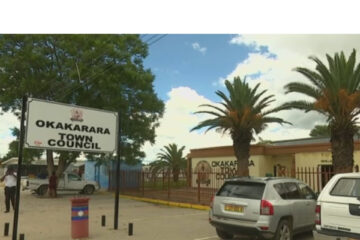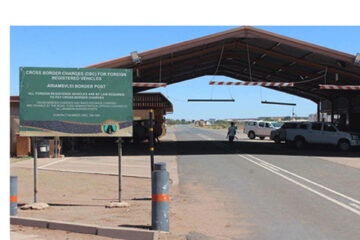The tragic story of baby Nangula Haikali, her parents, grandmother, aunt and neighbours that knew the child was having a ‘difficult time’, raises disturbing questions.
According to reports, a vulnerable baby girl was mistreated, unloved, and murdered bit by bit. Those arrested for the horrific deed are the same people who should have been her first nurturers. But, society must not only point a finger at the two women accused and forget about this issue. The problem is deeper than that.
It is a tradition here in Namibia to leave babies and young children with elderly relatives in villages or impoverished suburbs. An old granny or auntie may love their children’s babies very much. But, that love will not overcome arthritis, cataracts, naptime, bad hearing, sciatica, high blood pressure, diabetes, the impatient temperament that comes with aging, or dementia. Most of our elders have daily body pain to varying degrees. And yet, for many in different cultures, their children have dropped babies needing maximum care on their doorstep.
Parents cannot avoid their legal obligations to their children just because they have placed the child in the care of a relative. The tradition of babies being dropped on parents, siblings and grandparents needs a major adjustment. Raising someone else’s baby must always be a free choice, not a cultural obligation.
Culture must not force elders or aunties or sisters into silence about the fact that they do not want or cannot physically (or financially) take care of their relatives’ children. Many very capable, healthy older women desire a house full of children in their later years. That’s fine for them; others do not want this. And that’s fine for them. We must not force this latter group to care for children due to cultural guilt-tripping.
Whether the parents of a child are still together as a couple or not, the responsibility for the child’s safety remains with BOTH of them equally.
Imagine someone gives an active two-year-old boy into the regular care of a half-blind auntie who can only move around with a crutch. The parents placing their child in such a situation are irresponsible. They must bear the burden for any negative results.
Our children do not become someone else’s responsibility just because we have to work or go to school or we are broke or don’t have proper living space or we are ill or we are otherwise occupied. Having and raising a baby is a full-time job. The sacrifice caused when a child is born is immense. But, if those who choose to make a baby, then choose to make that sacrifice.
It is not enough to buy nappies every so often or a toy at Christmas or send money every few months to a care provider and claim you are a good parent. The duty, responsibility, attention, and emotional consideration for children is a 24/7/365 labour of love.
Each person expected to be involved in the care of the child placed in a family home must AGREE to the task. No assumptions must be made. The money involved must be agreed on. An assessment of each person’s physical capacity to care for the child at all times must be confirmed. If this is not done, then the culpability for neglect lies with each party involved to varying degrees.
Family or blood connections do not automatically make someone a capable, attentive, loving childcare provider. Assuming a young sister or an older child in a home will want to (or be able to) look after a baby is wrong. This is done too often and must be weeded out of our cultures.
How many more vulnerable children in Namibia are being neglected (to different degrees) due to the outmoded and dangerous tradition of dropping babies off with relatives and assuming proper care will be forthcoming?
Neighbours living in close-quarters know much about what goes on in each other’s homes. For better or worse, this is a reality. People who know a child is being ill-treated and yet, say nothing until after the worst happens, have to ask themselves hard ethical questions. People witnessing child abuse MUST intervene.
Let us mourn Baby Nangula Haikali, but learn a lesson from her life and death. There must be a change in our traditions and cultures around childcare.



